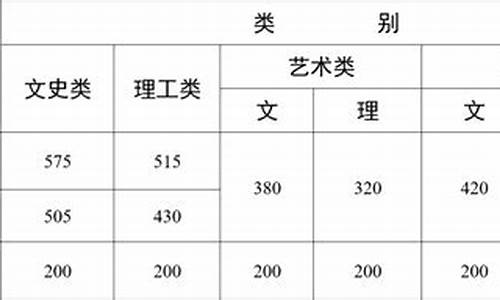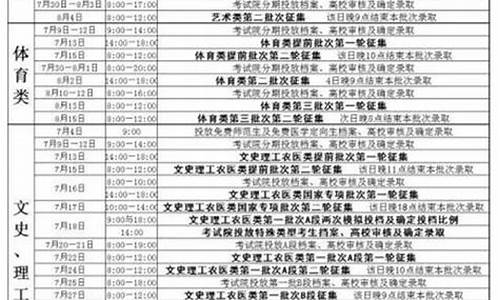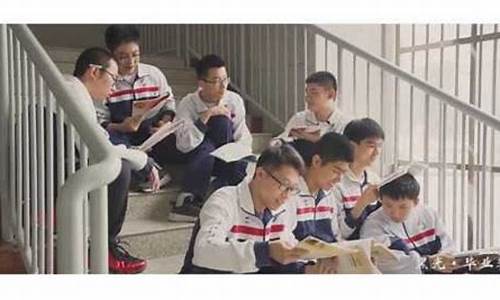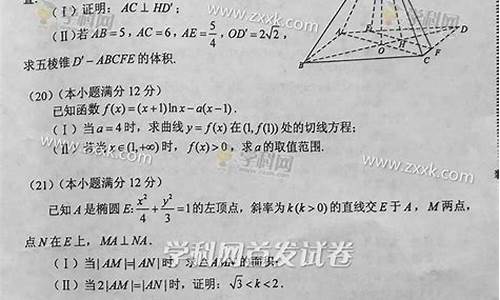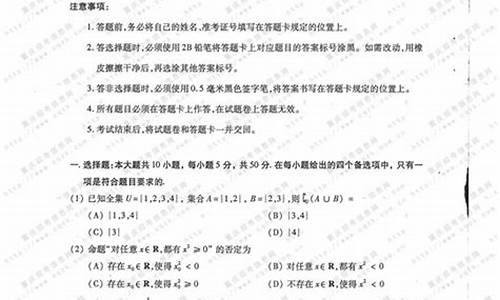天津市2017高考英语-2017天津高考英语试题及答案
1.天津高考 英语两考是在同一考场吗
2.2017年高考英语全国卷1 - 阅读理解B
3.2017年高考英语备考:关系代词副词的区别
4.2017高考英语必备:英语否定的七种表示方法
天津高考 英语两考是在同一考场吗
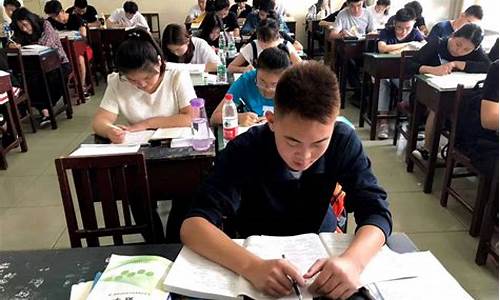
不是的。
两次英语考试不可能在同一考场的。从2017年高考开始,在现有英语听力两次考试的基础上,实行高考英语笔试两次考试,取笔试和听力各两次考试中较高的分数,计入高考总分。
2017年高考英语全国卷1 - 阅读理解B
I work with Volunteers for Wildlife, a rescue and education organization at Bailey Arboretum in LocustValley. Trying to help injured, displaced or sick creatures can be heartbreaking; survival is never certain. However, when it works, it is simply beautiful.
我在“野生动物志愿者”组织工作,这是蝗虫谷贝利植物园的一个援救教育组织,帮助受伤、流离失所或生病的动物。这样的工作可能会令人心碎;因为无法确定动物是否能活下来。然而,当救援起作用时,这种感觉真的很棒!
I got a rescue call from a woman in Muttontown. She had found a young owl on the ground. When I arrived, I saw a 2-to 3-week-old owl. It had already been placed in a carrier for safety.
我接到马特顿镇一位女士的求救电话,她在地上发现了一只猫头鹰幼鸟。当我到达时,我看见了一只两三周大的猫头鹰。为了安全起见,它已经被放在一辆大货车上。
I examined the chick and it seemed fine. If I could locate the nest, I might have been able to put it back, but no luck. My next work was to construct a nest and anchor it in a tree.
我检查了这只幼鸟,看起来还不错。如果我能找到鸟巢,我也许能把它放回去,但没那么幸运。接下来的工作就是建造一只鸟巢,并固定在一棵树上。
The homeowner was very helpful. A wire basket was found. I put some pine branches into the basket to make this nest safe and comfortable. I placed the chick in the nest, and it quickly calmed down.
房主非常乐于助人,给我找来了一只铁丝篮。为了让鸟巢安全舒适,我把一些松枝放进铁丝篮里,然后我把小猫头鹰放进鸟巢里,它很快安静了下来。
Now all that was needed were the parents, but they were absent. I gave the homeowner a recording of the hunger screams of owl chicks. These advertise the presence of chicks to adults; they might also encourage our chick to start calling as well. I gave the owner as much information as possible and headed home to see what news the night might bring.
现在最需要的是这只小猫头鹰的父母,但它们不在。我给了房主一份小猫头鹰饥饿尖叫声的录音。这些录音会让猫头鹰父母知道小猫头鹰的存在,也会鼓励小猫头鹰学着尖叫。我把尽可能多的消息告诉了房主,然后回家,看看晚上会有什么情况。
A nervous night to be sure, but sometimes the spirits of nature smile on us all! The homeowner called to say that the parents had responded to the recordings. I drove over and saw the chick in the nest looking healthy and active. And it was accompanied in the nest by the greatest sight of all — LUNCH!The parents had done their duty and would probably continue to do so.
这的确是一个紧张的夜晚,但有时大自然的神灵会眷顾我们!房主打电话说小猫头鹰的父母已经对这些录音做出了回应。我开车过去,鸟巢里的小猫头鹰看起来健康又活泼。鸟巢里出现了最令人感动的一幕——小猫头鹰的身边全是午餐!它的父母已经在尽职尽责,而且很可能会继续这样做。
2017年高考英语备考:关系代词副词的区别
一、 关系代词和关系副词的区别
1、关系代词(that, who, whom, whose, which)所代替的先行词是人或物的名词或代词,并在句中充当主语、宾语、定语等成分。
例1. Is he the man who/that wants to see you?(who / that在从句中作主语,指人)
例2. He is the man whom/ that I saw yesterday.(whom / that在从句中作宾语,指人)
例3. They rushed over to help the man whose car had broken down.(whose在句中作定语,指人)
例4. Please pass me the book whose (of which) cover is green.(whose在句中作定语,指物。若指物,它还可以同of which互换)
例5. The package (which / that) you are carrying is about to come unwrapped. 你拿的包快散了。(which / that在句中作carry的宾语,指物)
2、关系副词(when, where, why, that)可代替的先行词是时间、地点或理由的名词,在从句中作状语。关系副词when, where, why的含义相当于"介词+ which"结构,因此常常和"介词+ which"结构交替使用。
例6. Beijing is the place where (in which) I was born.
例7. Is this the reason why (for which) he refused our offer?
例8. His father died the year (that / when / in which) he was born.
例9. He can’t find the place (that / where / in which) he lived forty years ago.
二、 判断用关系代词和关系副词
方法1: 用关系代词,还是关系副词完全取决于从句中的谓语动词。及物动词后面无宾语,就必须要求用关系代词;而不及物动词则要求用关系副词。请改错:
1. This is the mountain village where I visited last year.
2. I will never forget the days when I spent in the countryside.
习惯上总把表地点或时间的名词与关系副词 where, when联系在一起。此两题错在关系词的误用上。句1和句2的where, when都应改为which.。
方法2: 准确判断先行词在定语从句中的成分(主、谓、宾、定、状),根据第一点(区别),也能正确选择出关系代词/关系副词。
例10.This museum is ___ you visited a few days age?
A. where B. that C. on which D. the one
例11. This is the museum ____ the exhibition was held.
A. where B. that C. on which D. the one (答案:例1 D,例2 A)
在例10中,所缺部分为宾语,而where, that, on which都不能起到宾语的作用,只有the one既做了主句的表语,又可做从句的宾语,可以省略关系代词,所以应选D。
而例11中, 主、谓、宾俱全,从句部分为句子的状语表地点,既可用副词where,又因 in the museum词组,可用介词in + which 引导地点状语。而此题中,介词on 用的不对,所以选A。
关系词的选择依据在从句中所做的成分,先行词在从句中做主、定、宾语时,选择关系代词 (who, whom, that, which, whose); 先行词在从句中做状语时,应选择关系副词 ( where 地点状语,when 时间状语,why 原因状语)。
方法3:当先行词是all, everything, anything, nothing,the one, much, few, any, little等,或先行词是形容词级时,或在there be 句型中,或当先行行词既有人又有物时,关系代词用that, 而不用which。
例12. Finally, the thief handed everything that he had stolen to the police.
例13. The soldiers and their guns that we sent to the front were lost.
方法4:在引导非限定性定语从句时,和在介词后不能用that,应用which。
例14.(错) The tree, that (改为which)is four hundred years old, is very famous here.
例15.We depend on the land from which we get our food.
2017高考英语必备:英语否定的七种表示方法
一、 all 的否定式:not all…(或:all…not)表示“并非都……”、“不是所有的都……”例如:
Not all men can be masters. (= All men cannot be masters.) 并非人人都能当头头。
Not all bamboo grows tall. 并非所有的竹子都会长得很高。
二、 both 的否定式:not…both (或:both… not) “并非两个……都……” 例如:
I don‘t want both the books. 我不是两本书都要。
Both (the) windows are not open. 两扇窗子并不都开着。
三、 every…的否定式:“不是每……都……” 例如:
Not every book is educative. (或:Every book is not educative.) 不是每本书都有教育意义的。
Not everyone likes this book. 并非人人都喜欢这本书。
This flower is not seen everywhere. 这花并不是随处可见的。
四、 always的否定式:“并非总是(并非一直)……” 例如:
He is not always so sad. 他并不是一直都这样悲伤。
五、 entirely, altogether, completely 和quite 的否定式:“不完全……”,“并非完全……” 例如:
The businessman is never to be entirely trusted. 不可以完全信任商人。
He felt not altogether satisfied. 他并不完全满意。
I don’t agree completely. 我并不完全同意。
What he did was not quite proper. 他做的不十分妥当。
六、 all the time 的否定式:“并非一直……”、“未必老是……” 例如:
A foolish man doesn‘t make a mistake all the time. 笨人未必老是犯错误。
七、 not…and…的否定式,被否定的往往是and后面的那一部分。 例如:
He did not speak clearly and correctly. 他讲得清楚但不正确。
This film is not interesting and instructive. 这部**有趣但无教育意义。
She cannot sing and dance. 她会唱歌但不会跳舞。
如果将and 换成or,not 对其后面的两部分就全盘否定了。
He did not speak clearly or correctly. 他讲的既不清楚也不正确。
如要对上述的all, both, every, always, 以及entirely, altogether, completely, quite 和 all the time 等词作完全否定,那就分别要用与之相对应的全否定词,如no, none, neither, no one, never, not (never)… at all 等。例如:
All of them can do it.—— None of them can do it.
Both are good.——Neither is good.
Everybody likes it. ——Nobody likes it.
He is always late. —— He is never late.
We don’t trust them entirely. —— We never trust them at all.
He was here all the time. —— He was never here.
声明:本站所有文章资源内容,如无特殊说明或标注,均为采集网络资源。如若本站内容侵犯了原著者的合法权益,可联系本站删除。



